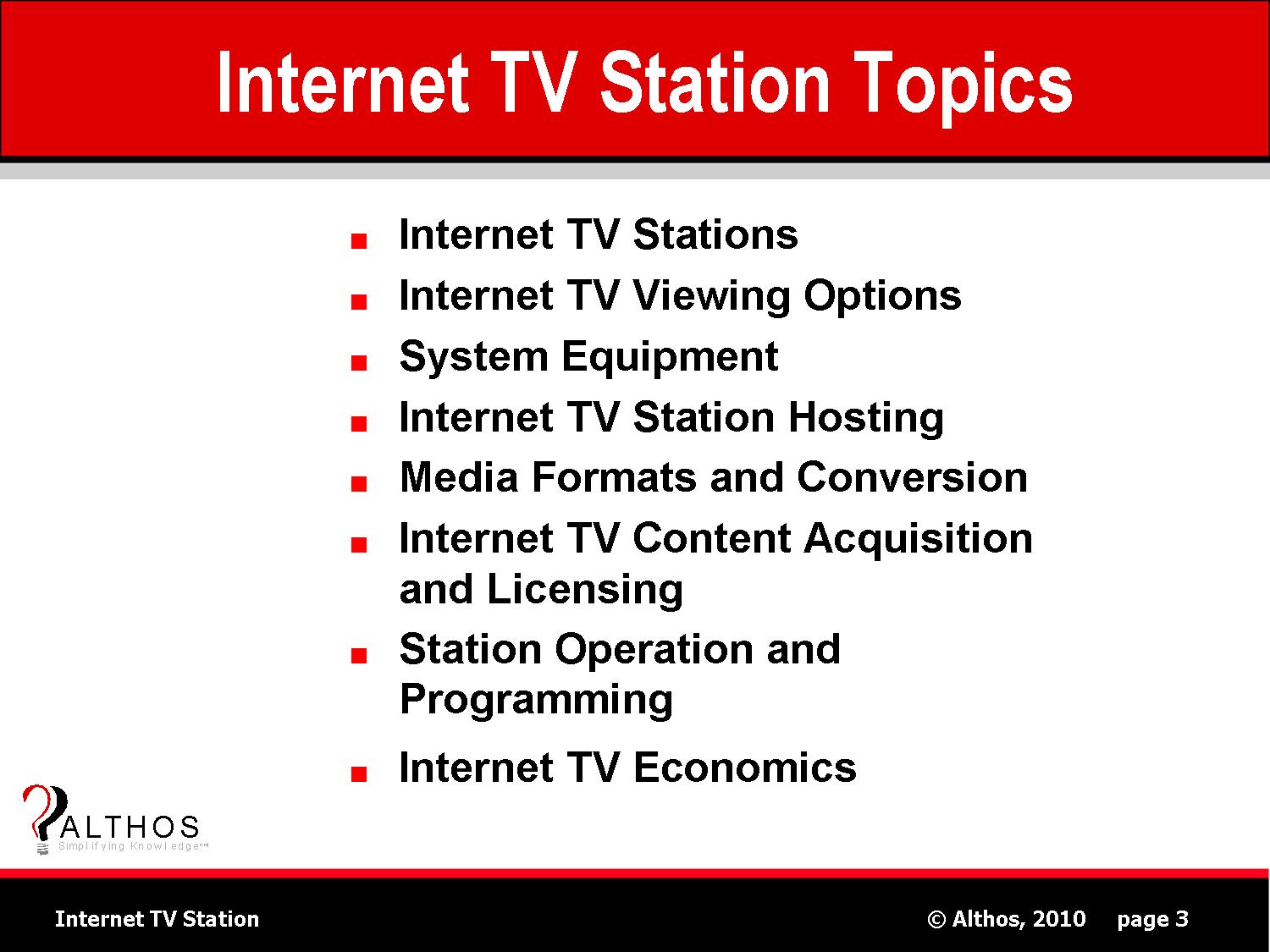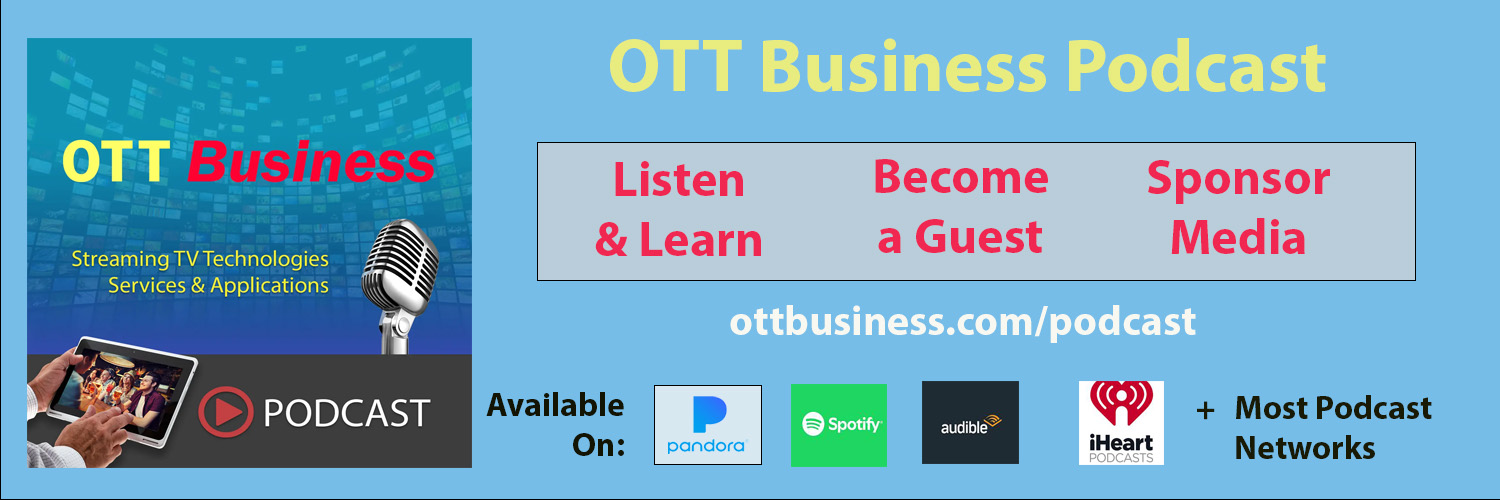Internet TV Stations – send television signals through the Internet. Internet TV programs may be live or stored media (on-demand).
Internet TV Viewing Options – Internet TV viewing options range from using standard analog televisions (NTSC, PAL) using STB adapter boxes to viewing programs on computers or multimedia mobile devices.
System Equipment – System equipment allows for the selecting of a media source, modifying it so it can be sent through an IP network, and coordinating how the use can receive and play the media.
Internet TV Station Hosting – TV station hosting is the providing of TV service on a system that is owned and/or operated by another company. The content owner (TV station) uploads the TV program and the host platform distributes it to viewers.
Media Conversion and Formats – Digital media formats that are used by Internet TV stations range from simple low resolution AVI to highly compressed high quality MPEG-4 signals.
Internet TV Content Acquisition and Licensing – Internet TV is about content. Internet TV Station operators must obtain content that will attract viewers and there are content owners (such as studios) have unique requirements for content licensing.
Station Operation and Programming – Internet TV Station operation involves scheduling programs, obtaining and mixing or producing content.
Internet TV Economics – Revenues and Costs for operating a Internet TV station which includes content costs, broadcasting costs, and operational costs.



